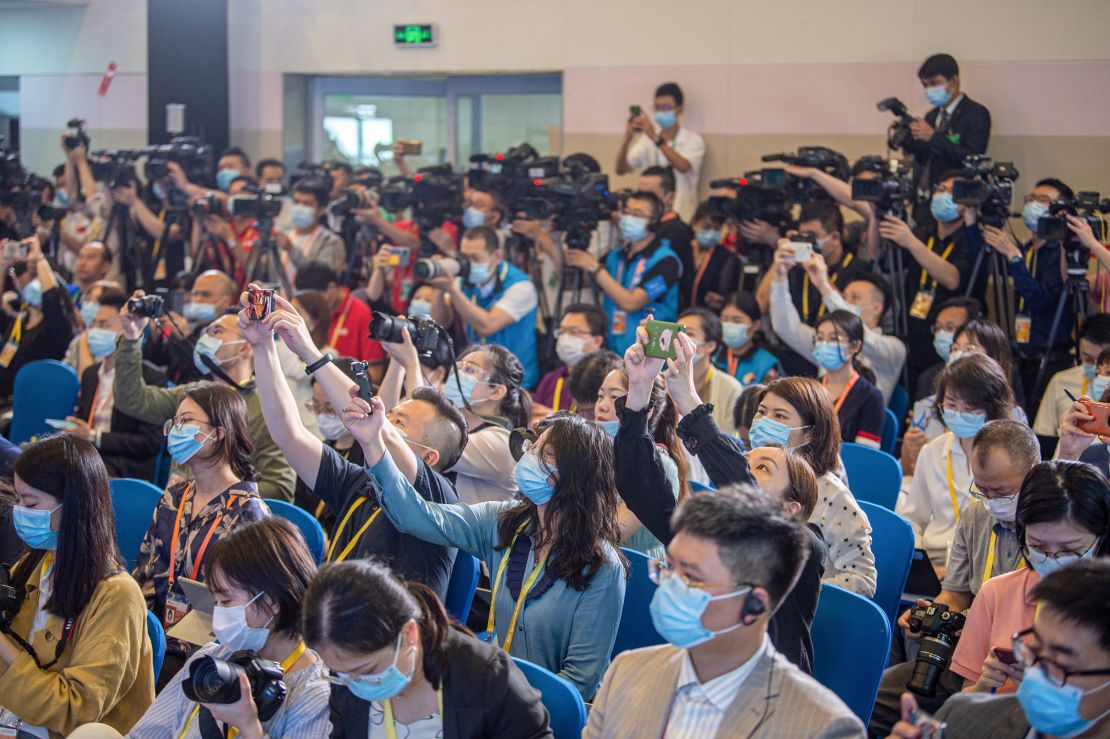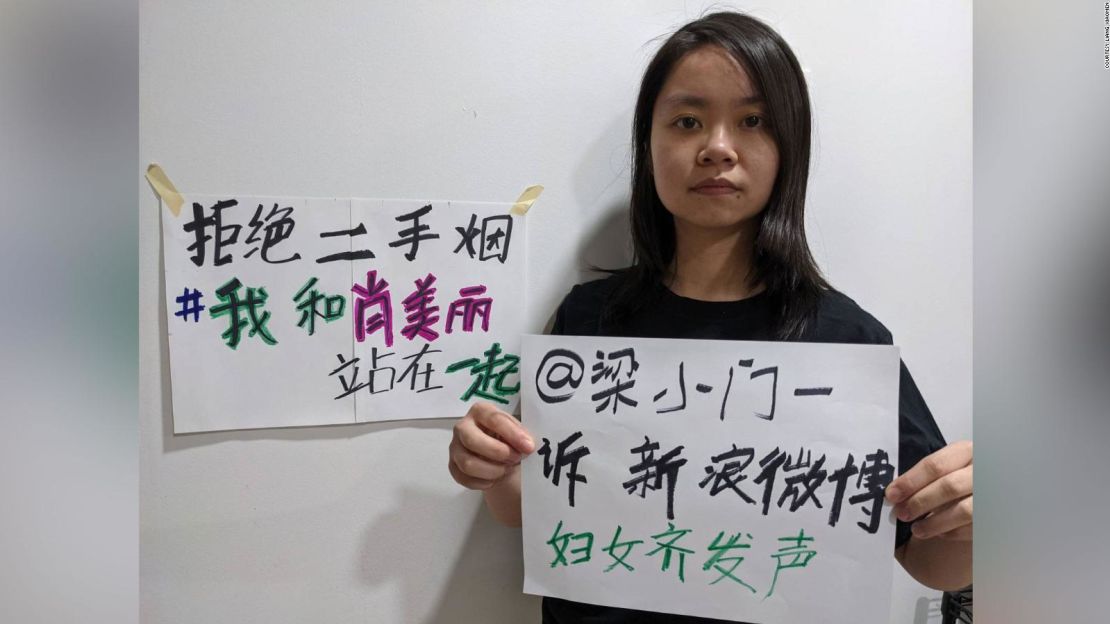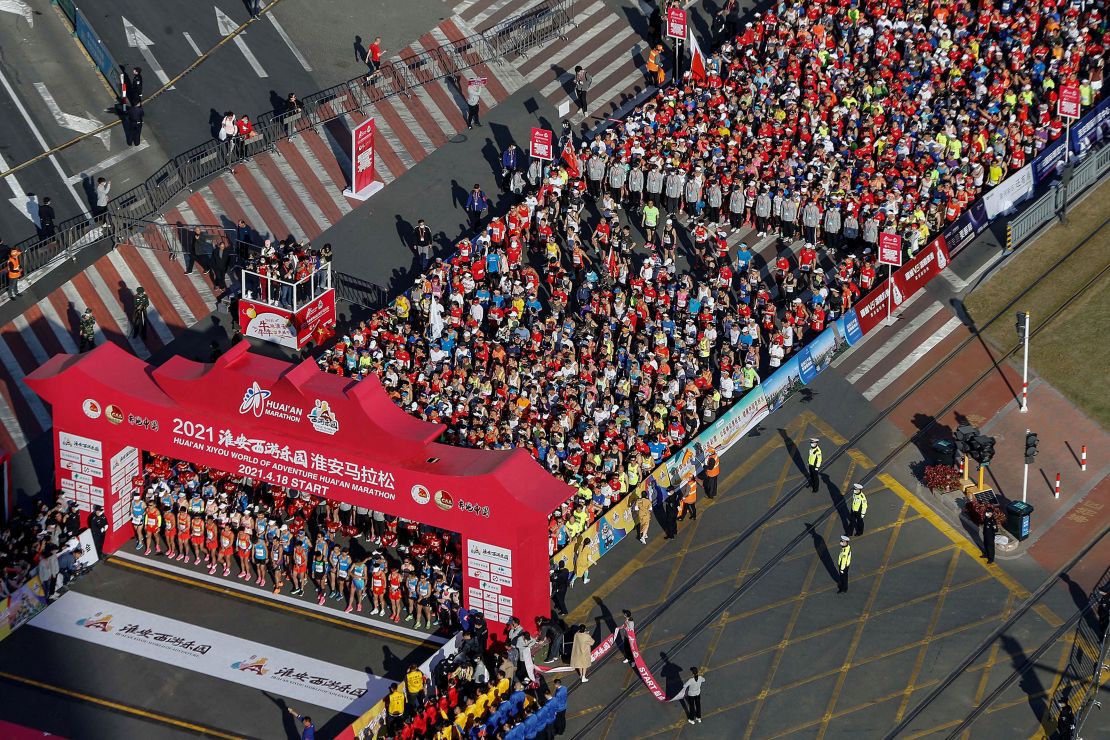Editor’s Note: This is a wrap of several top stories from China for April 19, 2021.
Under President Xi Jinping, China’s former leaders have grown accustomed to keeping their heads down.
But in an essay published this week, ostensibly a tribute to his late mother, former Premier Wen Jiabao appeared to issue what many have interpreted as a coded criticism of Xi: calling for fairness, justice, humanity and liberty, all while remembering a period of history the Communist Party would rather forget.
Wen’s words took Chinese social media by the storm. His essay was shared hundreds of thousands of times – before censors stepped in to stop people spreading it (yes, even the country’s second-highest official for a decade could not escape China’s increasingly stringent censorship).
The essay was published in an obscure newspaper in Macao, perhaps indicating no mainland Chinese outlet was willing to publish it. Wen could not be reached for comment about the piece.
A poignant tribute to his mother, who died in December, Wen’s essay touched on how his father, a teacher, was persecuted during the political and social upheaval of China’s decade-long Cultural Revolution. During which time he was placed under house arrest and subject to brutal interrogation, scolding and beating. After one particularly bad beating, his father’s face was so swollen it blocked his eyesight, Wen wrote.
And at the end of the essay, Wen outlined a vision for an ideal China – one that seemed to imply the country’s current state is not meeting the 78-year-old’s expectations.
“In my mind, China should be a country full of fairness and justice,” Wen wrote. “There should always be respect for the will of the people, humanity and the nature of human beings. There should always be youthfulness, freedom and a striving spirit.”
While to outsiders his criticism may be so subtle as to not merit censorship, for close followers of Chinese politics, an intervention by a party elder like Wen is remarkable, particularly as the government is cracking down on even the slightest deviations from the official narrative in the run-up to the Communist Party’s centenary this July.
“Given the political climate, his speaking out itself is an important act – and a veiled criticism against Xi,” said Wu Qiang, a political analyst in Beijing.
China’s Premier from 2003 to 2013, Wen was widely considered to be a relatively liberal, reformist figure within the Chinese leadership. He was once a top aide to Communist Party General Secretary Zhao Ziyang, who was purged for opposing the violent crackdown against protesters on Beijing’s Tiananmen Square in June, 1989.
And he has been censored before: in an interview in 2010, Wen told CNN’s Fareed Zakaria that freedom of speech was “indispensable” and the Chinese people’s wishes for democracy and freedom were “irresistible.” After briefly going viral, the video was scrubbed from the Chinese internet.
Compared to those comments, Wen’s essay this week is far milder in tone, but the climate has changed dramatically, with both freedom of speech and any aspirations for democracy and freedom taking a major hit under Xi.
The business of China
The Boao Forum for Asia is back, and ready to give the world an idea of what doing business with China will look like post-pandemic.
After missing 2020 as Covid-19 gripped the globe, Boao returns this year in China’s Hainan province. Organizers say the event is the world’s largest “offline” conference this year, according to Chinese state media. Some 4,000 people – including representatives from various international organizations, companies and the media – are attending in person, with many others participating online.

There’s already been some buzz about China’s ambitious plans for its digital yuan, which Beijing started rolling out a test version of last year. Li Bo, a deputy governor from the People’s Bank of China, insisted Sunday night that the purpose of the digital version of the yuan was not to replace the US dollar or any other currency. The country wants to “let the market decide,” he said.
Attention at Boao this week will also be on whether any high-profile American entrepreneurs and investors make headlines as the United States continues to navigate a tumultuous relationship with China. Apple CEO Tim Cook and Tesla CEO Elon Musk are both expected to attend. Meanwhile, Blackstone’s Stephen Schwarzman and Ray Dalio, the billionaire founder of the world’s largest hedge fund, are scheduled to speak during a panel Monday night.
– By Jill Disis and Laura He
Young feminists fight back against nationalist trolls
About a dozen prominent young Chinese feminists have had their accounts on social media platforms deleted after they were the target of incessant chauvinist and misogynist attacks from mostly male, nationalist users.
“At first, I could not believe it,” said Liang Xiaowen, who lost access to her account after over a week of abuse. “The slander against me continued online, but I can’t even defend myself anymore.”
Liang said she and other feminists were “collectively silenced by an internet-wide crackdown that hit like a tsunami.”
Liang Xiaomen, a Chinese feminist living in New York, is suing Chinese social media site Weibo for removing her account.

Nor is this the first time. In recent years, an army of nationalistic influencers and their followers have become powerful aides to the government-employed censors policing China’s internet, swarming on those who speak out and intimidating them into silence.
China’s feminist movement – already subject to a harsh crackdown under Xi – is the latest target of a sweeping online crusade against voices deemed “unpatriotic.” Trolls sift through years of posts on feminist social media accounts, searching for the slightest suggestion of alleged “anti-China” opinion.
Sometimes, as in Liang’s case, even supporting victims of harassment is enough to prompt an onslaught of personal attacks.
But Liang refuses to be silenced. In a rare step, she filed a civil lawsuit this week against social media giant Weibo, demanding to have her account back.
“I want to show everyone that there are still efforts we can make to try and preserve the space we’ve created together. I don’t want to give up,” she said.
Quoted and noted
“China and the United States are committed to cooperating with each other and with other countries to tackle the climate crisis.”
– It wasn’t the most exciting text, but an agreement signed by Chinese and American climate negotiators Sunday is the first positive development in the bilateral relationship since US President Joe Biden took office. Observers have long pointed to climate as a potential area for cooperation even as deep disagreements remain over trade, Xinjiang and Hong Kong.
Photo of the day



















